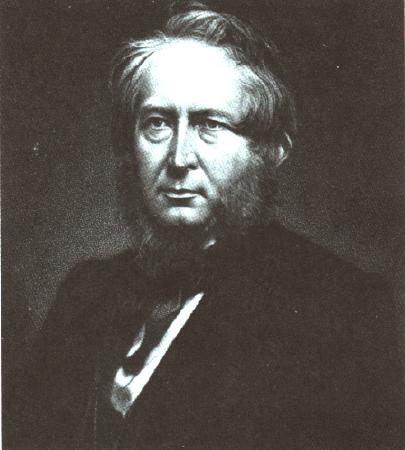|
| In 1850, the Michigan State Legislature passed The Second
Organic Act of the University of Michigan (Hinsdale, 40). To a great degree,
this act would emancipate the University from much legislative control
(40) and give it a unique standing among other state universities. Rather
than the legislature making administrative decisions about such matters
as how to spend funds, these decisions would be handled within the University.
As a semi-autonomous body, the University could more effectively make management
decisions than could the legislature, which was miles away in Lansing and
had little experience running a college. The administrative matters were
best left to those who already knew the inner workings of educational institutions. |
|
| Other areas that the school had difficulties in would
also soon be resolved under the administration of the University of Michigan
-- Ann Arbor's first president. In 1852, the governing Board of Regents
selected Henry Philip Tappan of New York as President
(Farrand, 94). Though some of his critics described him as 'imperious'
and 'un-Americanized,' during Tappan's term many changes and advancements
were made. He was one of the most important Presidents in the school's
long history. He led Michigan to true University status by raising funds
for the purchase of desperately needed scientific equipment and for books
to fill the under-supplied library (Farrand, 115). He pushed the University
forward during the critical few first years of its existence. This was
no small accomplishment for a new leader just taking the reigns of a large
institution. |
 |
Tappan also turned his attention to the selection criteria
of the faculty. He replaced much of the faculty, a majority of which were
clergymen, with "Young well trained men of intellectual distinction" (Bordin,
11). Department chairs were no longer to be selected according to religious
denomination, but by expertise and ability (11). Tappan declared, "There
is no safe guide in the appointment of professors save in the qualifications
of the candidate" (Hinsdale, 45). |
|
| As much as Tappan did for Michigan, there were those
who did not like his ideas on the minimal role of religion in education
and his personal habits that included drinking wine with some of his meals
(Farrand, 113). In June of 1863, the Board of Regents removed Tappan from
his position as President (156). He was so beloved by his students that
upon word of his ousting they stoned the home of Regent Donald McIntyre
of Ann Arbor and burned, in effigy, the "resident regent"(156). It was
not surprising that Tappan had many friends among the rich, poor, educated,
and uneducated (158). The regents had done a great disservice to both he
and the University. Had he been allowed to continue his work, the University
might be a better institution today. As an innovator in education, he was
among the greatest. |
|
| Another of Michigan's great leaders was James
Burrill Angell, a Rhode Island native and former president of the University
of Vermont (Peckham, 77). He took the position as President of U of M in
1871 and held the position for 38 years (77). His influence led Michigan
on the first steps toward an international student body. |

